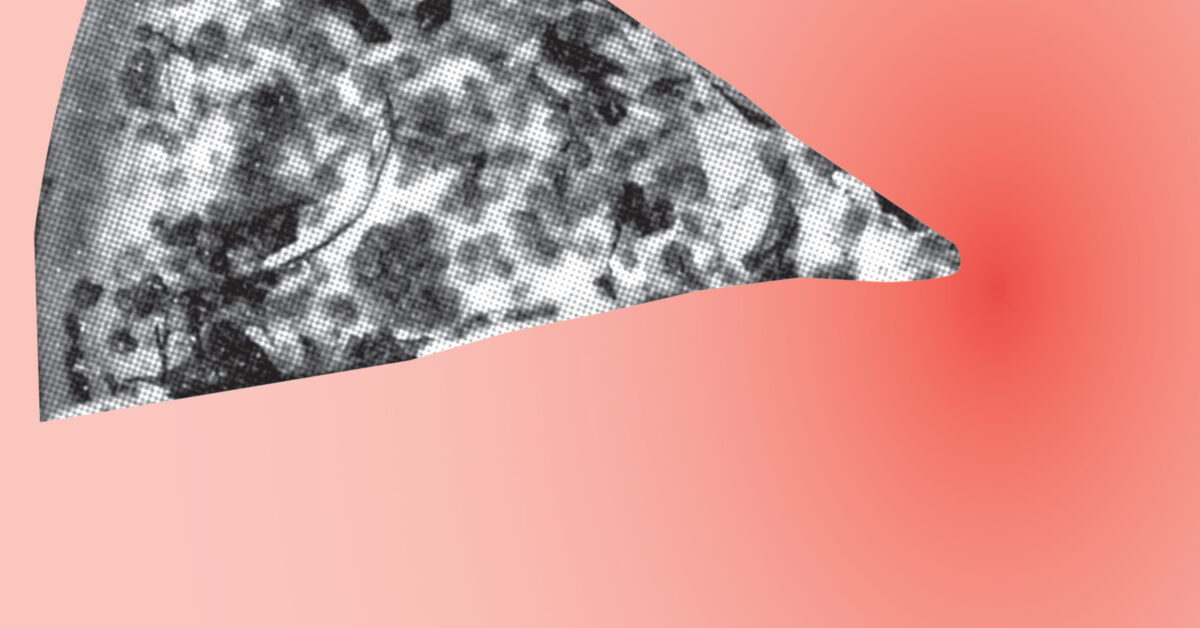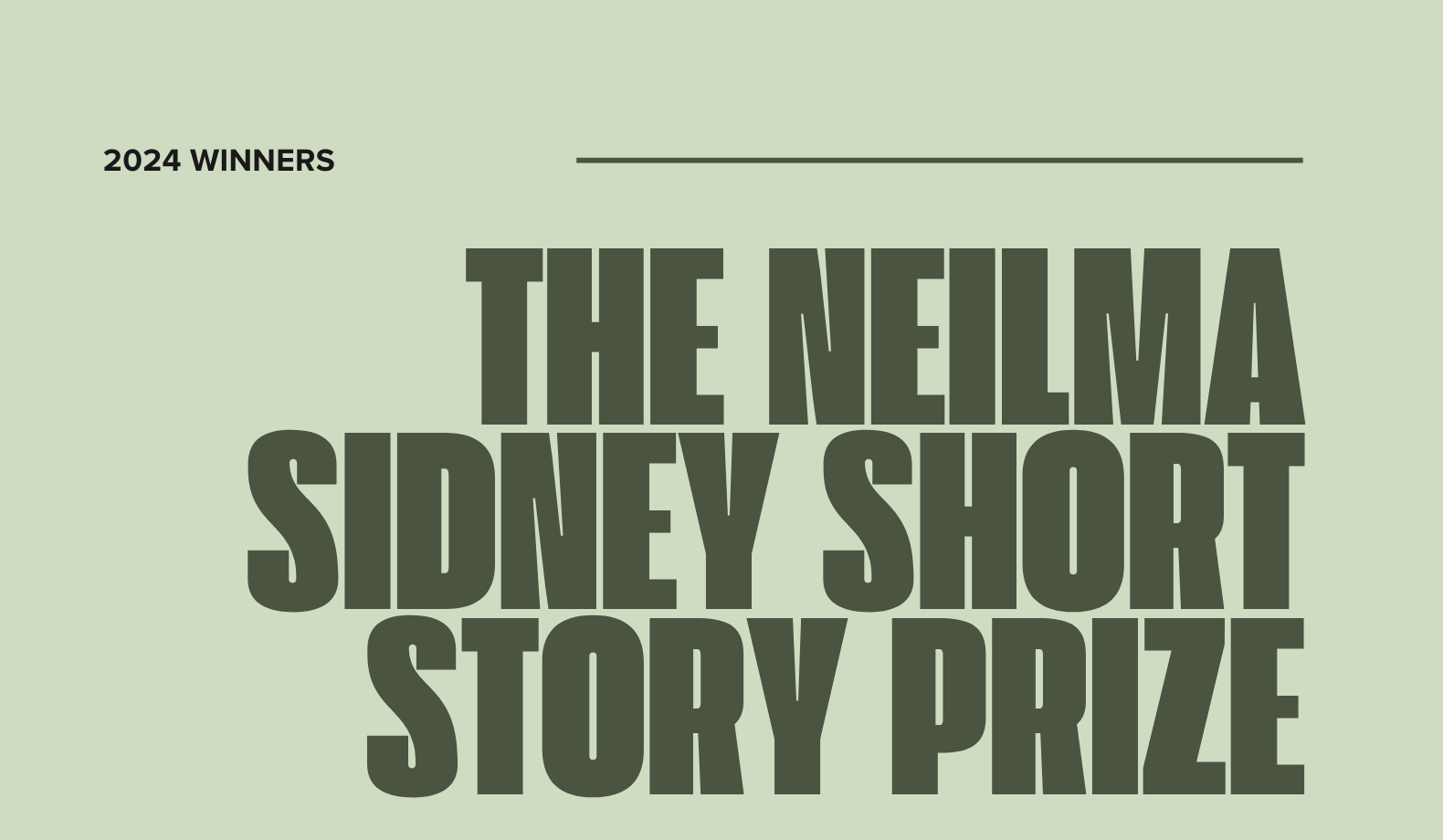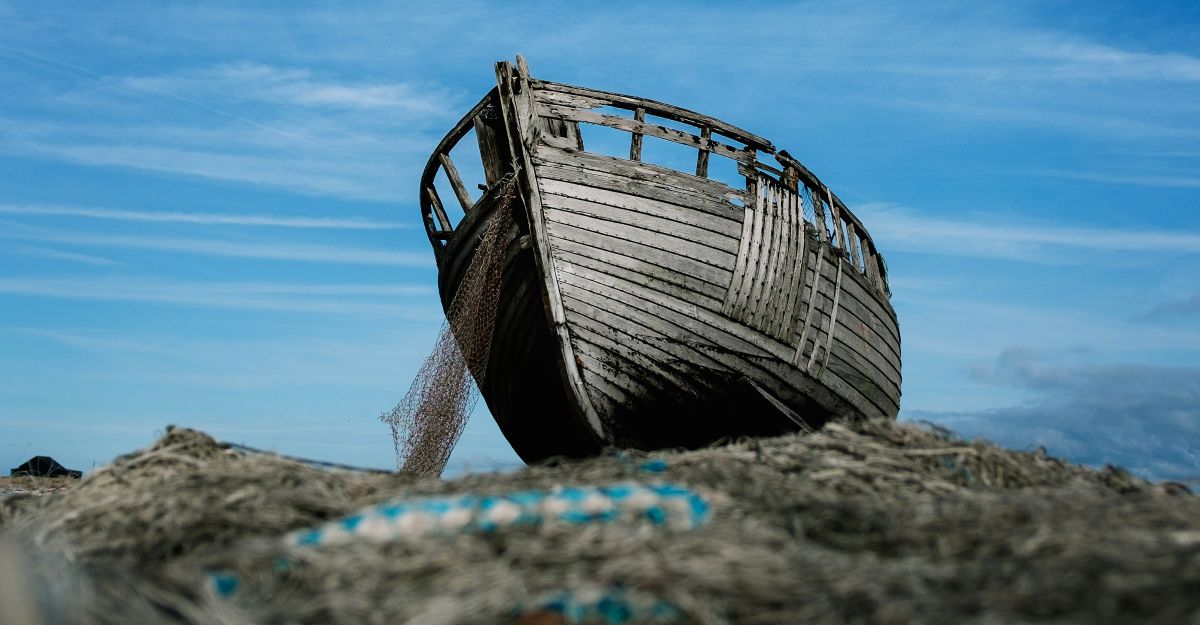The next time we saw each other I would only remember the name Bastard, which was not his name but what his friends had called him, how they’d introduced him that first night, because it resembled the sound of his true surname. But I felt strange addressing him as that; even an unflattering nickname seemed to produce intimacy I didn’t care to feel. Instead, I didn’t call him anything.
I said, Hi, and then: Do you remember me?
Yeah, he said, of course. I’m not retar—
Don’t, I said, say that — even as I heard the rest of the word drop from his mouth, my own voice too sudden and small in that instant. I felt for the right language, wanting to be clear, cutting, but he spoke across me, gesturing to pizzas laid out in their flattened-down cardboard boxes in front of us.
You’re vegetarian, right?
I didn’t answer him exactly, just looked at his face, so he explained: you just seem like one of those people who takes things too far. Then he picked up a pizza slice — one heaped with shredded ham and not much else that I could decipher — and started to angle it into his mouth. I was trying to remember his true surname, what had made it phonetically similar to Bastard, and also what his first name might have been (must still be, I considered, placing him together then-to-now).
This night, the second time we were meeting, was on our university campus for first-year orientation. It was a Monday and one of the first of the week’s gatherings, with more activities — a pub crawl, cinema session and trivia — to follow. I had made myself feel brave, even brazen, by arriving alone, not knowing if I’d know anyone else, and I was ready to talk blithely to anyone, or to feign nonchalance in my own company, hoping to look casual in my long boots and short hem. I wore a skirt made of overlapping triangles of yellow fabric, like a drooping sunflower head, and whenever I took a step I could feel how my bare thighs showed where the cotton pieces parted. I could feel the sparse hairs standing up from my skin, and my skin rippling into goose bumps against the breeze.
That evening the dusk deepened into shadow and pastel, colours rich and cool. We stood in a kind of courtyard, a space between classroom areas with hydrangeas in the flower beds; higher, darker leaves of plants I couldn’t identify cascaded over our heads, and beyond them a sky turned shades of rose, lavender, turquoise. On the other side of this building cluster, lawns sloped down to a body of water with brown and white ducks and ink-dark, blue-black swamp hens. Walking across the campus, I’d watched these birds glide, cutting ripples into the surface of the lake, and heard their murmuring quacks — a chorus of hums and squawks and honks softened by distance.
I had heard there were rabbits on campus too, many sick with myxomatosis, but that the groundskeepers poisoned either way — along with stray cats and their kittens that sheltered under the portable office buildings by the Arts building carpark. I was already planning my offerings to these cats: small ring-pull cans of tuna I could stash in my backpack, in case of any spontaneous encounters or opportunities. I was ready and eager to practise active forms of kindness that year.
Now I wondered what Bastard was going to study. He didn’t strike me as a Humanities student but I reminded myself I didn’t know him, really — that his private high-school education didn’t preclude him from the kind of major I was planning or from attending the same university and regional campus as me. Still, I realised I would have expected him to attend a sandstone university, to be a Law student, probably, and also a Young Liberal.
Three years earlier, he’d been introduced to me through somebody’s bedroom window by another girl — someone who knew him already and who was swift to warn me: his father’s really rich so he thinks he can have whatever — whomever — he wants. Just watch him, okay, I mean, be careful? He’ll probably try to pick you up but he tries with just about everybody. Don’t add to his number unless you want to, want it?
This girl was in the same year as I was but went to the same private school as Bastard. Her candour had seemed so casual, so easy, that I’d been a bit in awe. She and I had watched Bastard step out of a silver Mercedes into our mutual friend’s driveway and I’d felt relieved to see that I didn’t think he was good-looking, though I couldn’t have said why exactly: he had the requisite features in height and hair and complexion.
Later, none of this would matter, of course. What I’d felt — or not felt — turned out to be of little consequence. At the same time, I knew I wanted to be desired, to be seen, the way Bastard’s classmate and her peers were seen: known and coolly knowing. A gold clip with three yellow diamantes held back this other girl’s side part; it flashed at me from her toffee-coloured hair. I was mesmerised — ready for anything she, or Bastard, might offer or promise.
On campus I soon realised Bastard wasn’t there with anyone either — or, more likely, he seemed to know just about everyone, but he also seemed detached, adrift — until I found him shoring up with me.
Hey, Party Girl, he said as we found ourselves together again, and I didn’t know whether he was referring to this night’s orientation event — if it could be called a party — or the other, first night. I recalled him physically, in a way that paired with my own physicality: wetachinghardsoft. That past time there had been a trampoline stretched uneasily under us, the tautness and bounce gone out of its ageing elastic, and above, a night sky smeared with stars. Adjacent to the trampoline stood a tree house, or actually a cubby aloft on stilts — there wasn’t any tree — in which, Bastard confided from the trampoline, across other gatherings of friends, he’d had too much oral sex. In the sparse milky starlight he made a face I took to be rueful, though of course he was boasting. Later I would wonder if he’d meant the sex was something he’d received or given, or whether it had been reciprocal, though I thought I could guess. His skin looked grey in the night, against the trampoline’s solid expanse of black.
In the campus courtyard I felt cold and remembered my denim jacket in the back seat of my car, which I’d parked in the free carpark some distance beyond the main buildings and up a hill. Cans of beer and premixed spirits were submerged in plastic laundry tubs of ice, though being on my P plates, I couldn’t partake.
I’m going to go, I told Bastard, and get my coat.
For an awful second, I thought he was going to say he’d give me his jacket to wear — a corduroy coat in teddy-bear brown — but instead he said he would come with me.
No, I said, it’s fine, you should stay, but he said no, really, he wanted to.
Let’s blow this joint, I thought he said — or it might’ve been he had a real joint to smoke.
I felt my mood decline, the disappointment of the night diffusing into a tingly hot unhappiness in my palms and cheeks. I tried to remember there were four more nights of orientation to fill, and the whole semester, my whole degree beyond that.
I began to walk and sensed Bastard next to me, keeping stride. He didn’t proffer anything to smoke after all, as we navigated the grassy stretch between the Arts building and the lake, then crossed a small billy-goat bridge over partially sunken lily pads. The water holding the leaves afloat shone between them like black sequins, starrily. I wondered if there was a joint he was withholding, if he’d decided I wasn’t worth the offer after all, or if it had been my mishearing.
I’m going, he said — after a stretch of what might have been companionable silence — to be someone, to be big. Then he raised his hand, touching his jaw as though to ascertain the shape of his smirk. Do you know, he went on, who I’m going to be?
He was practically leering now, I thought. We were beyond the library, passing the stark concrete blocks of the Science buildings before reaching the hill that led to the free parking. I was watching my own feet, the toes of my boots on the gravel, not wanting to slip and go scudding off the path in some painful way. I was remembering, piecing together the last time, determining for myself what he could or couldn’t do to me tonight. Not that he’d done anything to me the last time, as such. Rather, we’d done things to each other that were meant to be pleasurable, that should have felt good, but I considered now that we were each in our own ways distracted by the question of how much I would be willing to give.
And that was only the start of it. Suddenly my anger clarified, turned resolute. I’m going, I thought, to bury you. The idea arrived whole, as we made the last of the ascent and rose onto the open carpark, where my Barina was indistinguishable from the other vehicles stopped haphazardly on the gravel, their various colours muted under the night sky. Either side of the carpark lay paddocks and, distantly, the shapes of horses belonging, I supposed, to the neighbouring equestrian school. One street lamp shone on a pole, though we were beyond the campus’s internal streets, its real infrastructure.
Paused together, I imagined thudding Bastard down with a shovel or a brick or some other piece of detritus that might come to hand, burying him in an adjacent paddock for the horses to trample, firm and neat and flat under the ground.
*
After the trampoline we had parted ungraciously, though first I’d waited while Bastard fumbled and pissed against one of the cubby stilts. His back was rigid with dissatisfaction, which I wanted and didn’t want to take personally, to heart. He’d said he was going to see what the others were doing, and, not wanting to trail behind him visibly, I’d held back. Ahead of us steps led down to the patio and the front entrance of the house. Under the porch lights and against the black night, the patio’s orange bricks had glistened like barbecue coals. Once Bastard had ambled down to the house and entered through the sliding door, I’d moved towards it too.
I saw the girl from earlier, sitting on a garden-bed retaining wall between two of her friends, but as I approached, her eyes passed over me, registering neither recognition nor interest. She was turning pieces of woodchip over and back between her fingers, lining them up like signets along the wall’s edge.
Music increased gradually in volume from inside the house, which, with the sound of voices, registered to me only as noise. Soon afterwards, someone had unzipped and started up the hot tub on the patio and I’d surprised myself by stripping to my bra and knickers to join them in the churning bubbles, the water tepid and opaque. Sinking to my clavicles, I’d let it cover and hold me. Someone started a game of king’s cup, though I only sipped from my own, refilling it with cheap prosecco and cask wine with juice. The figure of the girl who had warned me away from Bastard was on the lawn nearby, slumped raggily against one body then the next. As I looked over, she gestured towards the house vaguely and sobbed quietly into the shoulder of one of her friends.
Later, when I was dressed again, something small would shine up at me from the driveway gravel, and I’d recognise the hair slide, remember it from the side-sweep of her dark hair, and pocket the accessory — to keep or return, I couldn’t determine.
*
Inside the house, dried off and clothed and moderately sobered, I’d found a quilt to curl under in the corner of a white leather couch. Bastard, in the kitchen, was holding forth. This, he’d said, is not a party — it’s just a gathering, a group of good people, getting together. At this he’d met my eyes and lifted an eyebrow. I was friends with and knew only the host, and it sank in then that I was not one of Bastard’s good people. There were maybe five, six of us inside, and the host kept grinning at me crookedly, touching my back and shoulders and saying, You right, you good, mate?
Soon after, Bastard tasked himself with taking care of the girl: going out to the lawn where she was limp, rolled onto her side with another friend stroking fingers through her hair, combing the strands back from the girl’s face. The security light made them all metallic: gold and shadow. Bastard scooped the girl up in his arms and carried her into the house and down one of the passageways, his voice murmuring and she responding only in a quiet moan. From the sofa I heard her head or heels bang and drag against the plaster as he angled her away. I waited for him to emerge again but he didn’t.
Only hours later, from under a makeshift sofa bed, my head starting to roil, did I see him in the dim kitchen. Around me a couple of others slept more deeply on floor mattresses: I could smell the boozy dampness of us all. Outside the sky looked fuggy, grey. Bastard flicked a switch and then he was backlit by a kitchen downlight, rifling through some backpacks, then lifting out a square I took to be a wallet; I heard the tearing of Velcro, saw the flash and crinkle of a foil packet in his palm.
I sat up against the back of the couch. Is she, I said, stage-whispering, okay?
He looked across to me and nodded. Yeah, he said. Don’t worry, I’ve got this. He grinned at me and left, and I stood up and moved after him, thinking — I will find a bathroom, drink some water or throw up. But instead, I stood at the threshold of the bedroom I thought he’d gone into. I waited a moment, listening, then pushed my way in.
*
The third time I saw him was the final night of orientation, which had ended well off campus, outside a bar in the city, close to the wharf. Ahead of us yachts glowed against the water’s dark glimmer: the industry lights and chimney line flames made a vaguely festive impression, throwing coloured dots over the water in red, white, orange. I was wearing a violet dress that closed up around my body firm as a rose bud, or a fuchsia reversed, and until I saw Bastard the tingly heat in me that night had felt only bright and good, a fizzing anticipation.
Hey, he was calling out to me: Party Girl!
He was wearing the same corduroy coat, the colour warm — like coffee or hazelnut — and his hair looked almost fluffy, as though freshly washed. A line of broken skin ran across his face, from his cheekbone to chin, crusting towards a vivid hot pink.
I let him catch up with me and we fell into stride together again, even as I directed myself at a slant, away from his trajectory. We stopped at a planked walkway behind a restaurant where some small sailboats were docked, toylike and bobbing, creaking over the water’s lapping.
What happened, I said, to your face?
Bastard lifted his hand to the injury, or to where his smirk registered.
Oh, that, he said, is my fault.
The restaurant behind us had closed, so its boxy building gave a dark shelter from the main road’s visible traffic and sounds. I waited for what he’d say next.
I can’t help it, he said. I just go for crazy girls.
I tried to temper my feelings towards him, even as the thought bubbled up again: I will drown you.
Afterwards I’d think: I never had the language for Bastard. I don’t mean his name — that didn’t matter. I kept losing myself, throwing us both into euphemism, abstraction, and in the end that was where I left him: in an uncertain, grey space, water washing over his face and back again in the shallow place where I’d knocked him down.



